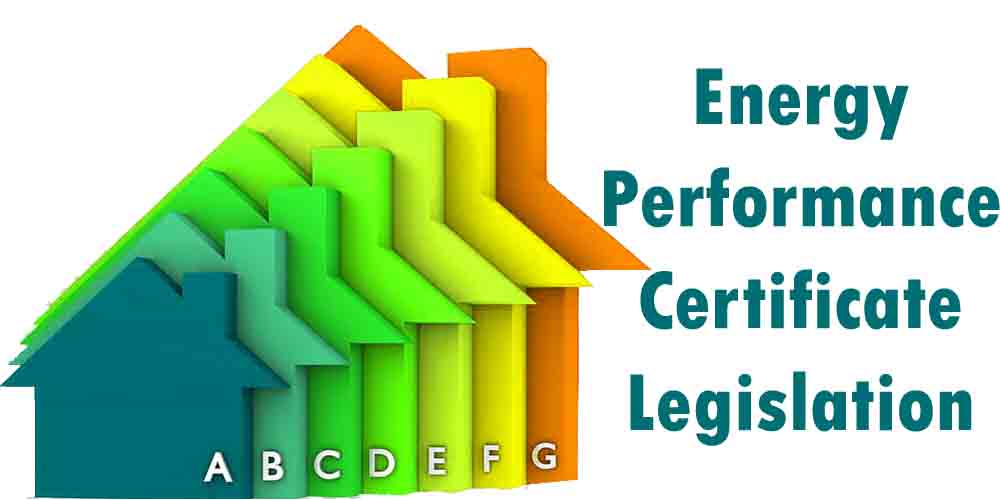Are you living in the UK and looking to sell or rent a property? If so, then you will probably need an Energy Performance Certificate (EPC). In essence, an EPC is a 4-page document that shows the energy efficiency of a building. You've probably seen a multi-coloured sticker at the back of your home appliance with some figures on it. Well, an EPC is just like that one, only that it's for buildings. Some of the information outlined in an EPC include how much it costs to heat and power property, recommendations of energy efficiency improvements, costs of conducting them, and the savings that each of them generates.
The
Energy Performance Certificate legislation plays an integral role in improving
the energy performance of buildings and, in the process, helps businesses
create quality jobs, boost productivity, and create an economy that works for
everyone. With the impacts of climate change being seen worldwide, it's evident
there's a need to adopt more sustainable practices, key among these being more
efficient energy sources. The Energy Performance Certificate legislation is
paramount to achieving this goal.
EPC and legislation
An EPC is usually required within 28 days of a property being marketed for rent or sale. You can do this on your own or allow estate or letting agents do it for you. An EPC has been a legal requirement in the UK since 2007, and landlords and sellers who do not have the document could be fined up to £5000. An EPC typically costs between £55 - £65 and is issued by an accredited domestic energy assessor like us, Energy Smart.
Epc Home is the online website of Energy Smart Bedford and covers, Northamptonshire and has carried out more than 12000 EPCs since 2013 and is a certified energy assessor accredited by Stroma. You can visit the epc Northampton website to book an Energy Performance Certificate online. A visit to the property is required to gather the information required for the EPC.Importance of the EPC Legislation
Landlords, domestic customers, social housing providers, and renewable heat incentives require EPC legislation as per the law. By ensuring that properties such as buildings are more energy-efficient and embrace smart technology, bills from businesses and households are slashed. In addition, EPC legislation helps to improve health and comfort in buildings to realize better-quality housing for all. Thanks to the EPC legislation, the UK is able to reduce its energy demand, boost its economic resilience, and contribute to carbon reduction. The domestic and non-domestic energy efficiency industry will also see an increase in the employment rate.
The role of EPCs
EPCs allow consumers to compare the energy performance of different buildings and affords them an understanding of running costs and energy efficiency. There are two main components in the EPC; one is an A-G rating, A+ to G, for non-domestic buildings. The ratings are based on the cost of energy per square meter of the property. It contains supplementary information such as clarification text on various aspects, a second rating of the building based on carbon emissions, and ratings of individual components of the building like walls. For consumers to compare one property to another using EPC, the building's performance needs to be measured independently.
Conclusion
Since the mandatory requirement to have EPCs took place, information on the energy performance of buildings has become available, and consumers can make informed decisions during renting or purchasing properties. EPCs provide building owners with recommendations for improving their buildings. There is also enormous data that EPCs offer on the UK's building stock performance that can be used by lenders, researchers, and the government to develop new products and services.
EPC and legislation
An EPC is usually required within 28 days of a property being marketed for rent or sale. You can do this on your own or allow estate or letting agents do it for you. An EPC has been a legal requirement in the UK since 2007, and landlords and sellers who do not have the document could be fined up to £5000. An EPC typically costs between £55 - £65 and is issued by an accredited domestic energy assessor like us, Energy Smart. Epc Home is the online website of Energy Smart Bedford and covers, Northamptonshire and has carried out more than 12000 EPCs since 2013 and is a certified energy assessor accredited by Stroma. You can visit the epc Northampton website to book an Energy Performance Certificate online. A visit to the property is required to gather the information required for the EPC.


Comments
Post a Comment